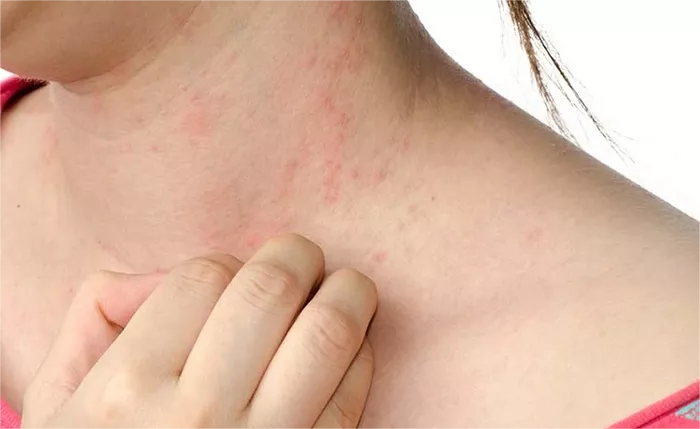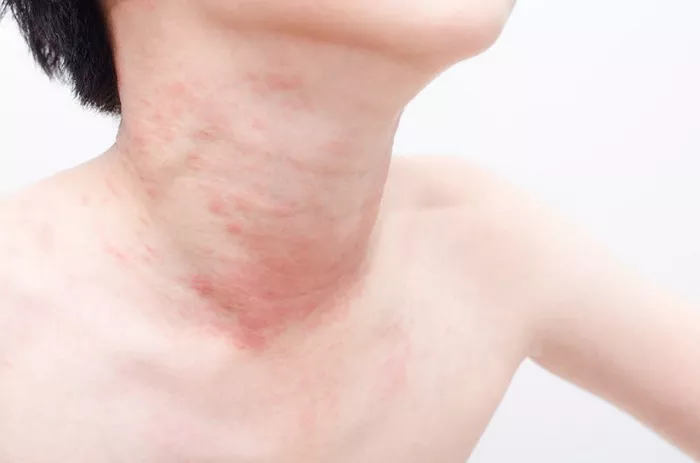Hives, also known as urticaria, are a common skin condition characterized by itchy welts or raised, red bumps. While hives can be triggered by various factors such as allergies, stress, infections, or underlying health conditions, the itching sensation they provoke can be particularly bothersome and uncomfortable. Finding effective relief for hives itching is paramount for individuals suffering from this condition. Fortunately, there are several approaches and remedies that can help alleviate itching and provide comfort. In this article, we delve into these solutions to offer insights into managing hives itching effectively.
Understanding Hives Itching
Before exploring remedies for hives itching, it’s essential to understand why hives cause such intense itching. Hives occur when certain cells release histamine and other chemicals into the bloodstream, leading to the dilation of blood vessels and leakage of fluid into the skin, resulting in the characteristic welts or bumps. Histamine is a key mediator of allergic reactions and plays a central role in triggering itching, among other symptoms, in hives.
The itching associated with hives can vary in intensity, ranging from mild to severe, and may be accompanied by other discomforts such as swelling, burning sensations, or stinging. The urge to scratch can worsen the symptoms and may even lead to skin damage, infection, or scarring if not managed appropriately.
Effective Solutions for Hives Itching
1. Over-the-Counter Antihistamines:
Antihistamines are commonly used to alleviate itching and other symptoms of hives by blocking the action of histamine. Over-the-counter antihistamines such as cetirizine (Zyrtec), loratadine (Claritin), or diphenhydramine (Benadryl) can provide relief for mild to moderate itching. These medications are available in various forms, including tablets, capsules, and liquids, and should be taken as directed by a healthcare professional.
2. Topical Treatments:
Applying topical treatments directly to the affected areas can help soothe itching and reduce inflammation in hives. Calamine lotion, which contains ingredients like zinc oxide and ferric oxide, can provide a cooling sensation and relieve itching. Hydrocortisone cream, available over the counter, can also help alleviate itching and reduce redness and swelling in hives. However, it’s essential to use these topical treatments cautiously and as directed to avoid potential side effects such as skin thinning or irritation.
3. Cool Compresses:
Applying cool compresses or ice packs to the affected areas can help numb the skin, reduce inflammation, and alleviate itching in hives. Wrapping ice packs in a cloth and applying them to the skin for short periods can provide immediate relief from itching and discomfort. However, it’s crucial to avoid direct contact between ice and the skin to prevent ice burns or frostbite.
4. Oatmeal Baths:
Oatmeal baths are a soothing remedy for hives itching, as oatmeal contains compounds that can help relieve inflammation and itchiness. Adding colloidal oatmeal, which is finely ground oatmeal, to warm bathwater and soaking in it for 15 to 20 minutes can provide relief from itching and promote skin healing. Patting the skin dry with a soft towel after the bath and applying a moisturizer can help lock in moisture and further alleviate itching.
5. Stress Management Techniques:
Stress can exacerbate symptoms of hives, including itching, by triggering the release of stress hormones that can worsen inflammation and immune responses. Practicing stress management techniques such as deep breathing, meditation, yoga, or progressive muscle relaxation can help reduce stress levels and alleviate itching in hives. Engaging in regular exercise, getting an adequate amount of sleep, and maintaining a healthy lifestyle can also contribute to overall stress reduction and better management of hives symptoms.
6. Avoiding Triggers:
Identifying and avoiding triggers that exacerbate hives can help prevent episodes of itching and other symptoms. Common triggers for hives include certain foods, medications, insect bites, environmental allergens, and emotional stress. Keeping a journal to track potential triggers and consulting with a healthcare professional can help identify specific triggers and develop strategies to avoid them.
7. Prescription Medications:
In cases of severe or persistent hives itching that does not respond to over-the-counter remedies, prescription medications may be necessary. Oral corticosteroids, such as prednisone, may be prescribed for short-term use to reduce inflammation and itching in hives. In some cases, immunosuppressant medications or biologic therapies may be recommended to modulate immune responses and alleviate symptoms.
8. Consultation with a Healthcare Professional:
If hives itching persists despite home remedies or over-the-counter treatments, it’s essential to seek medical advice from a healthcare professional. A dermatologist or allergist can perform a comprehensive evaluation, determine the underlying cause of hives, and recommend appropriate treatment options tailored to individual needs. Additionally, seeking medical attention is crucial if hives are accompanied by other symptoms such as difficulty breathing, swelling of the face or throat, or dizziness, as these may indicate a severe allergic reaction requiring immediate medical intervention.
Conclusion
Hives itching can be a distressing symptom for individuals affected by this common skin condition. However, with the right approach and effective remedies, relief from itching and other discomforts associated with hives is achievable. Over-the-counter antihistamines, topical treatments, cool compresses, oatmeal baths, stress management techniques, and avoiding triggers are among the strategies that can help alleviate itching and promote skin healing. In cases of severe or persistent itching, consultation with a healthcare professional is recommended to determine the underlying cause of hives and explore appropriate treatment options. By incorporating these solutions into a comprehensive management plan, individuals can find relief from hives itching and improve their overall quality of life.

























